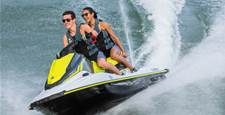“Hockey is one of the great passions of my life. I have never found it anti-intellectual.”
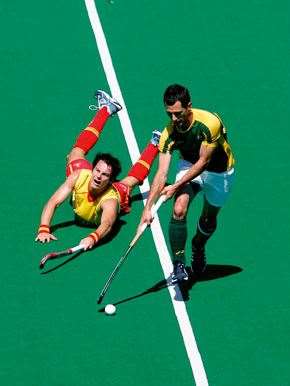 Jamie Dwyer leaves Spain’s Rodrigo Garza in his wake at the Champions Trophy in Melbourne. Images: Getty Images
Jamie Dwyer leaves Spain’s Rodrigo Garza in his wake at the Champions Trophy in Melbourne. Images: Getty ImagesDo you have concerns about the security in Delhi for both the World Cup and Commonwealth Games?
In the ‘70s, when I first went to England with the Kookaburras, bombs were going off in the streets of London because of the Irish problem. I was in Madrid, just outside the train station, when bombs went off there in 2004. I was in London, on my way to Rotterdam, when a bomb went off there in 2005. I think we’re a bit precious about these things sometimes. I know Pakistan is very dangerous at this time, but I don’t think you could say the same thing about India.
As a coach you’ve always been emphatic on teamwork, the unit above the individual. Does it concern you that individuals within the Kookaburras – guys like Jamie Dwyer, Mark Knowles, Eddie Ockenden – are rising to prominence in the public eye?
God, no. Not at all. Hockey is a complex, integrated team activity; the players need to rely on one another, they need to understand the contributions that everyone has to make. And you don’t win without everybody making a contribution – they need to understand that. But the other part of it is that you want brilliant individuals to do brilliant things. And the more brilliant individuals the better, in my opinion. But you don’t score a goal unless you have four, five, six pieces hung together correctly; it’s very rare that it’s just one action that results in a goal. So it’s critical that everyone in the chain plays their part. I encourage the players to be as unpredictable as they like within the framework that they need to understand one another.
What is your guiding philosophy as a coach?
This might sound simplistic, but athletes have to play the percentages. There’s a range of essential skills that any team needs to succeed and you have to get those skills right. And so the coach’s role is to hold the players’ feet to the fire. In the end I don’t make any tackles or passes, it’s up to them to do those things. But my role is to help them realise their potential. I believe most athletes don’t realise what they’re capable of, so it’s important to expand their horizons, to expand their possibilities. I think that’s critical. Leadership is about knowing where you’re going and convincing the people around you they can get there. Another thing I think is very important is creating a competitive environment. Last year we had 14 players debut – I’m really trying to develop a broader squad with more athletes who can play for Australia. That way we create a competitive environment and they push one another. That’s one of the important engines of progress in our group – the players push one another to be better.
Were these the tactics you used to continue motivating the Hockeyroos over that period of success from ’93-00?
With the Hockeyroos we always had gifted athletes and I defy any coach to win major competitions without gifted athletes. Where I think I can take a bit of credit is that we sustained our success for nearly a decade. That’s a hard thing to do. And, yes, it comes back to continuous improvement, internal competition and expanding their horizons.
Related Articles
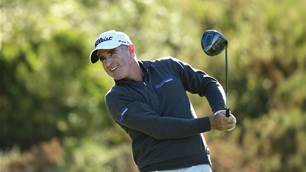
Video interview: Drinks With ... Matt Millar
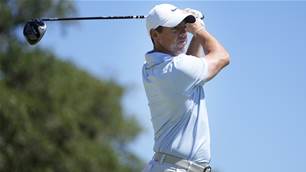
McIlroy turns to Butch Harmon ahead of Augusta berth
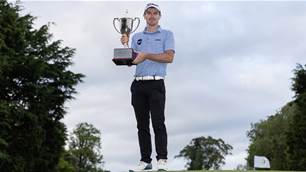
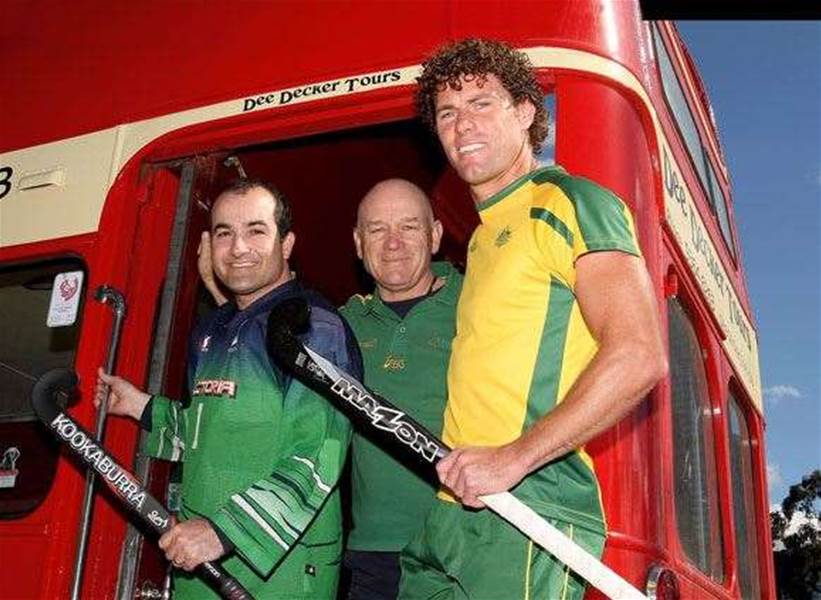
.png&h=115&w=225&c=1&s=1)




